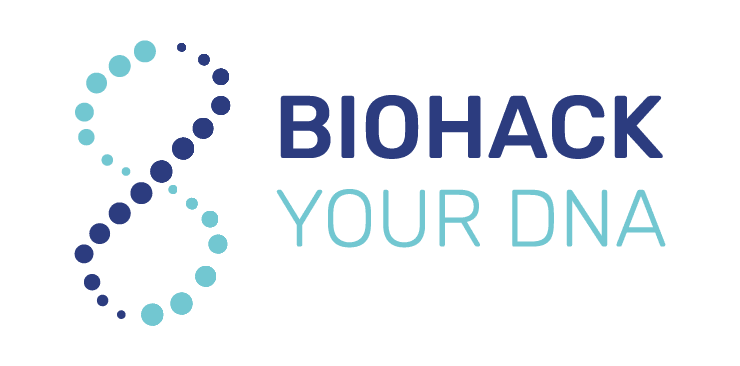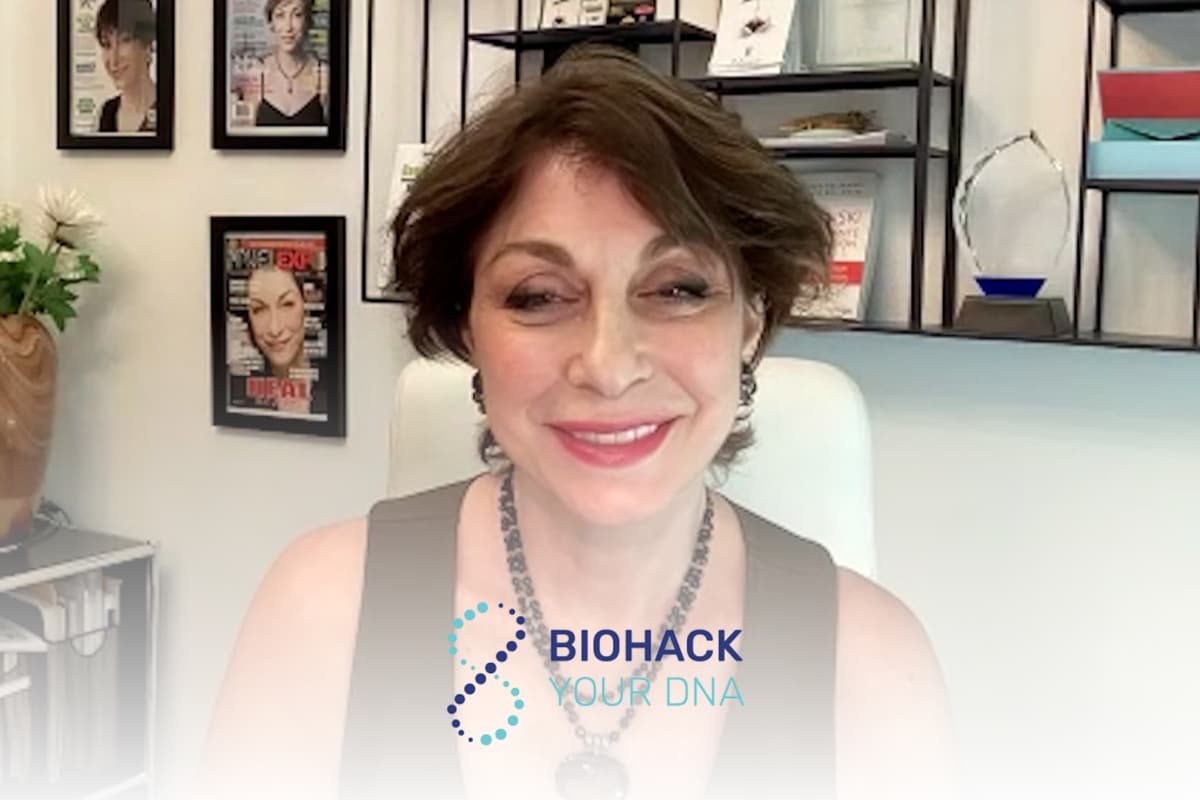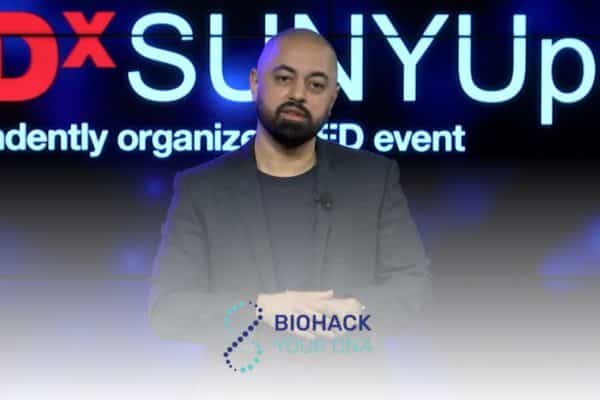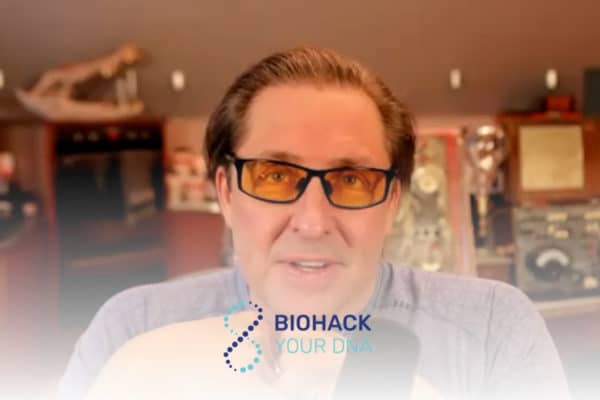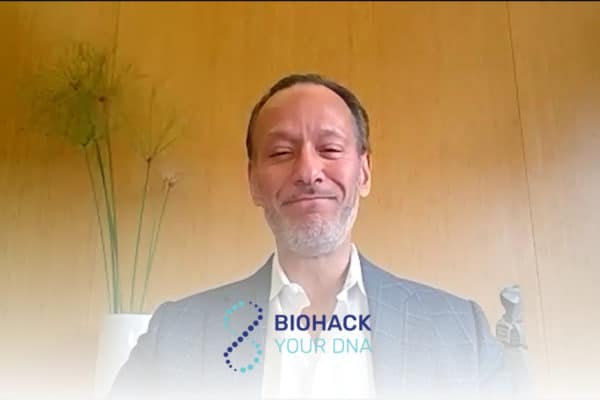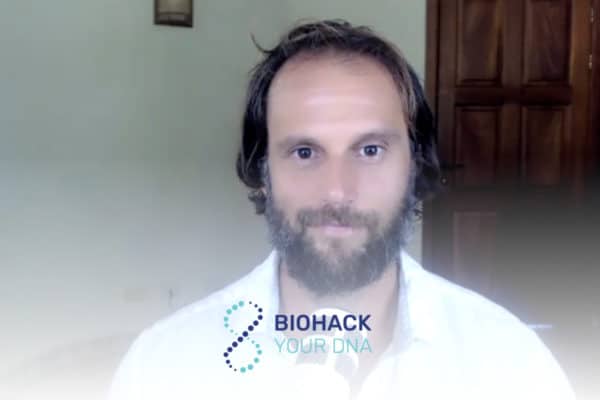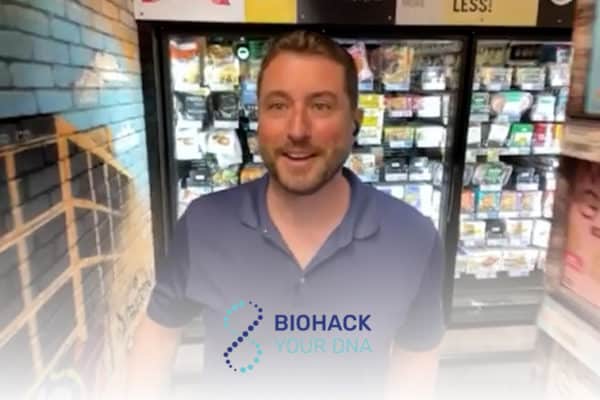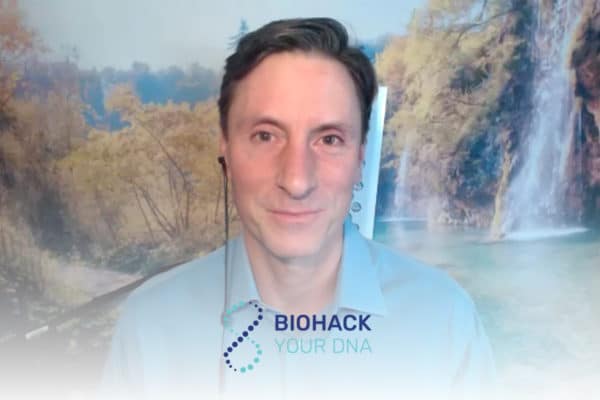Join the discussion below
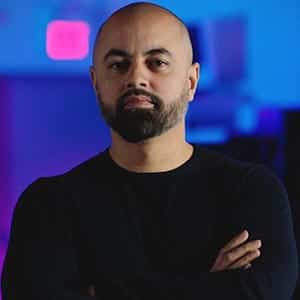
Kashif Khan is the Chief Executive Officer and Founder of The DNA Company, where personalized medicine is being pioneered through unique insights into the human genome. With the largest study of its kind globally, The DNA Company has developed a functional approach to genomic interpretation overlaying environment, nutrition, and lifestyle... Read More

Sylvie Beljanski, a French lawyer by trade, is a health advocate for holistic medicine, public speaker, internationally known author and entrepreneur. She is the Vice President of The Beljanski Foundation, whose mission is to research natural approaches to cancer. She is also the CEO of Maison Beljanski, an international dietary... Read More
- How to naturally boost your immune system when it needs more than gentle support
- How to jumpstart the natural production of white blood cells and platelets, which are the core of our immune system
- How a healthy gut creates RNA fragments, essential nutrients for your immune system
- Why RNA fragments are essential to all those taking chemotherapy
- All RNA fragments are not created equal
Kashif Khan
Hello, everyone. We’re joined by Sylvie Beljanski. Really cool topic today. We’re very lucky, in fact, to hear from her because this is unique IP that most people haven’t even heard of. And The Beljanski Foundation, which Sylvie runs, has been working on this, based on the work of her father so many years ago. First of all, thank you for joining us.
Sylvie Beljanski
Well thank you for having me.
Kashif Khan
It’s a pleasure. Tell us about, we’re gonna dive right in. Your team sent me this presentation and the first thing when I saw, I was like, wow, this is heavy science.
Sylvie Beljanski
It is.
Kashif Khan
Right? And then when I looked at it, I was like, wait a second. The things you’re saying here, I’ve never heard before. And you know, typically when you see things about cancer, it’s the same old story. And there’s a little bit of a tweak this way and a little bit of– but you’re looking at things from a completely different lens. So, one thing that stood out to me was your father’s work in terms of, you know, the white blood cells and the RNA fragments and some of the work he did. So why don’t we dive into that? And you can tell the audience the discovery and why you run this foundation.
Sylvie Beljanski
Sure, sure. So my father, Dr. Mirko Beljanski, was a PhD in Molecular Biology from the, at Pasteur Institute most of his career, but he has a very interesting and different background from the average PhD pharmacist. So, he was born in Serbia in a very poor family, really little peasants, and he was able to go to university thanks to scholarships. But this very different background, he did not come from an intellectual family at all, gave him this connection with nature and a very original way to look at things. And also, which is very different, maybe refreshing for scientists, he was never interested in money. It’s a very important point because pharmaceutical companies, which are the companies conducting most of the cancer research, are always looking for compounds that they can patent. And because they cannot patent nature, they just dismiss nature.
Kashif Khan
Right.
Sylvie Beljanski
But my father, which is, you know, coming from the… having been raised in the countryside, was looking at nature with a lot of respect. And he understood at a time where nobody was speaking of pollution, nobody was speaking on how carcinogens around us are affecting our DNA, he looked at the effect of nature on, and of the environment, on our DNA. How does it destabilize our DNA, how we can reinforce the benefit of good things in our environment to fight destabilization of DNA. When, at the time in the eighties, when all the scientists were looking at the understanding the genome as a explanation for cancer and looking for genes that would, they could tweak and would be the solution for everything, he really looked at how environment, the environmental impact on our DNA. And he found natural ways to improve our health that are of no interest to pharmaceutical companies, but are great solutions for people who care to learn about it.
Kashif Khan
Hmm. That’s so cool because you’re talking about work that was done 30, 40 years ago, where even today, we’re just starting to hear, you know, when we talk to people about genetics, since we say, well, your genes are one thing. That’s what you’re wired for, your innate cellular capacity, but your environment, nutrition, lifestyle choices are really what, are the load that makes you sick. You weren’t born with cancer, right? You didn’t have cancer at the age of five. Some kids unfortunately do; those are rare genetic conditions. But for the most part, these things happen later in life because it takes that many years of the wrong exposure that your father was talking about. So what happened when he came to the industry with his thinking and teaching? Obviously we didn’t see it for so many decades, so.
Sylvie Beljanski
Oh yeah. Well, the Pasteur Institute did not want to hear about it. So they just pushed him aside and they forbid him to publish. It was at the beginning. It was, since he was at the Pasteur Institute in Paris, he was publishing in French. Once they forbidded him to publish, he started to publish in English. And that’s also, now it’s a blessing because we have all those publications that we can share at The Beljanski Foundation. We saw the scientists around the world and he, when his discoveries led him to find natural plant extracts that help actually former President of the Republic French, French President François Mitterrand, to finish his second term when Mitterrand was diagnosed with advanced prostate cancer and the country was getting ready for early elections because the experts saw that Mitterrand would not finish his second term and, against all odds, Mitterrand took my father’s products and finish his second term.
After that, they sent a French army to destroy my father’s laboratory, to arrest him. And he died shortly thereafter because he was absolutely crushed. But what, what happened? I have to say that I’m a lawyer by trade. I’m not a scientist. And I was so shocked by the ways of French government, tried to destroy some knowledge that should be there to help people, you know, and instead of doing that, they were trying to destroy everything. I took the case to the European Court of Human Rights. I sued the French government and we won on unanimous decision, Beljanski against France. And it is after that, I came here and I started the Beljanski Foundation with the idea of continuing the research. I wanted to get scientific confirmation. And I was very lucky to see that my father’s research was actually very well received here in the states, by universities. And we have been able to work with Columbia University, with Kansas University Medical Center. We had a clinical trial at Cancer Treatment Centers of America. So very good things. And I’m very grateful for America for that.
Kashif Khan
That’s incredible. So you literally sued the government and won, which I’m sure not many people heard about. You know, I didn’t know that, but this is where, if you look at the data, your father said that he thinks that there’s some correlation between environmental health and cancers. And if you look at, prior to environmental exposures being a real concern, cancer wasn’t a problem, right? If you go back 120, 150 years, it wasn’t prevalent. The time that it’s all of a sudden prevalent, like you said, ’60s, ’70s, ’80s, all of a sudden it’s like, what’s this thing that everybody’s dying from is the same time where chemical use and horrible food–
Sylvie Beljanski
Absolutely.
Kashif Khan
Right?
Sylvie Beljanski
Went exponentially, yes.
Kashif Khan
Yeah. So both exponentially increased at the exact same time. And the scientific response was we’re gonna burn your lab down and get rid of you.
Sylvie Beljanski
Exactly.
Kashif Khan
Yeah, which was, it’s horrible. So, let’s dive into some of the specifics ’cause I know he went beyond that and he even looked at not only cancer itself, but even therapies. He looked at things like chemotherapy and white blood cell and, you know, how–
Sylvie Beljanski
Yes.
Kashif Khan
Yeah. So maybe let’s talk about some of that stuff.
Sylvie Beljanski
So for example, you know, for chemotherapy, he made the observations that chemotherapy is destroying not only cancer cells, but also a number of healthy cells, especially specifically a number of blood cells. And our immune system is made of a number of systems, actually. But really at the very core, there are the white blood cells. All those leukocytes that are created actually by the bone marrow; it is the bone marrow which creates all the family of white blood cells and platelets. And also all the white blood cells. You have the leukocytes, the lymphocytes, the natural killer cells, all those cells that are necessary to recognize an invader and destroy in invader. Whether it is a pollutant virus, those white blood cells are in charge of this recognizing and destroying the invader.
And my father said, “Okay, so how is a body naturally creating those white blood cells?” Starts with the bone marrow. So how can we support the bone marrow in doing its job? And he came up with the idea of little RNA fragments, which are specific of the DNA of the bone marrow, are going to prime the synthesis of the DNA of the bone marrow and support the bone marrow naturally in doing its job, which is to create white blood cells and platelets. The pharmaceutical industry has a very completely different approach. They have nothing for platelets. Platelets are those cells, blood cells, that prevent, that help clotting. You need those platelets to avoid bleeding forever.
Kashif Khan
Right.
Sylvie Beljanski
So pharmaceutical industry has nothing for that. What they are offering for patients with chemotherapy is growth factors that help replenish the number of white blood cells. But after a while, those growth factor are toxic. And since there is nothing for platelets, patients undergoing chemotherapy develop a disease very often called a thrombocytopenia. Thrombocytopenia is when there is not enough platelets and as the platelets have been destroyed by the chemotherapy and as bone marrow is exhausted by all those chemotherapies and cannot create fast enough new platelets to replenish what is needed. So the patient is bleeding, bleeding, bleeding. And the doctor can only say, “We have to wait until the… we cannot give you right away the next cycle of chemotherapy, you have to wait a few more weeks.”
So, that delays the treatment and what is offered is toxic. So my father came up with this natural solution made of little RNA fragments that come from a bacteria called E. coli K-12, which is naturally present in the gut. You have that E. coli K-12 today in your gut. And you are natural. I mean, the gut is kind of a manufacturing plant to transform the bacteria into those little nucleotides that are going to be absorbed to create what you need to function. Your gut is where there is a transformation between the food, the biome, and you get from that the nutrients that you need. And my father’s idea was while… If the body is not able to produce enough, we are just going to provide the body with those ready-made RNA fragments.
Kashif Khan
It’s so brilliant. I mean, it’s so… It’s simple, right? But that simplicity is what makes it so elegant and brilliant and the obvious solution.
Sylvie Beljanski
Indeed, indeed. And it’s working very, very well. We were very lucky, as I told you, with our relationships with American institution and we were able to have a clinical trial a few years ago at Cancer Treatment Centers of America with those little RNA fragments. And so they were looking at lack of platelets. Again, as I told you, the pharmaceutical industry is offering growth factors for white blood cells. So that’s a gold standard. You cannot undo that. Even if there is some toxicity associated to that, that’s a gold standard. So at Cancer Treatment Centers of America, they looked at the platelets side, which again, the pharmaceutical industry has nothing to offer. And very often, you know, at the beginnings, they start, patients start with a certain level of platelets and cycle of chemotherapy after cycle chemotherapy, that level goes down at the point where the patient has thrombocytopenia and they have to stop giving chemotherapy.
So in six clinical trials, they had different, the 32 patients with different kind of cancer, different chemotherapies were given. And they were given, some were given the RNA fragments made of E. Coli K-12 and some were given RNA fragments made of baker yeast to compare, to see if it was really what my father had discovered. The E. coli K-12 was really something unique and specific. And none of the patients who enrolled into the clinical trial and received E. Coli K-12 RNA fragments had thrombocytopenia. None had to stop their chemotherapy. All of them were, did well. Their bone marrow was kind of protected against the side effects of chemotherapy. Some ended their cycles of chemotherapy with higher level of platelets than what they started with.
Kashif Khan
That’s incredible. And how many participants were there?
Sylvie Beljanski
There were 32.
Kashif Khan
- And so you think about this stuff, and it’s not that this type of thinking doesn’t exist. Like if somebody’s on a statin for cholesterol, a doctor will say, “Take a Co Q-10.” It’s known that
Sylvie Beljanski
Absolutely.
Kashif Khan
You’re depleted of certain things and you need to replenish them. So I think it’s moreso the solution, you know, points to problems in a product that don’t want to be pointed out, perhaps, you know. But it’s already a known thing that if you’re taking this, take this, or if you’re taking this, there’s some contraindications of stop taking something else, right. And you can look up these things. So really, you’re not saying, “Don’t take chemo; chemo works. But if you’re going to do it, here’s a better journey for you. A healthier, cleaner journey.” And the beauty is you’ve proven it clinically.
Sylvie Beljanski
Protect your bone marrow naturally by taking the food really, because ribonucleid, which are the building blocks of the RNA, is food. It is considered an essential nutrient. So provide your body with what it needs to replenish itself as you are going through a quite destructive and toxic treatment.
Kashif Khan
Right. That’s incredible. And so you now study this, proven it, I mean, the beautiful legacy of your father is probably going to turn into treatment for people eventually and you’ll become standard of care, I hope, because it sounds so perfect for what’s needed. What else did he work on? ‘Cause I know it wasn’t limited to this. There was other things going on in the background.
Sylvie Beljanski
Indeed. I also made, you know, the observation that there is a great and the one big difference between healthy cell and cancerous cell, and that it is the fact that in the cancer cell, the DNA is destabilized. Meaning the two strands of the DNA, which are nicely interwoven in a healthy cell, become enlarged in a cancer cell. And those big openings, those big loops, leave space for the replication enzymes to be, get in contact with replication sites. And that’s how there is a big turnover with cancerous cells, with destabilized cells, compared to healthy cells. And my father had the idea to really target those cells whose DNA is open. And he found in nature, natural compounds, natural extracts that are able to selectively recognize those open loops, enter those open loops, and block the duplication of those destabilized DNA. And since it is working at the level of the DNA, then it doesn’t matter if it is cancer of the breast, a cancer on the ovaries, a cancer of the prostate.
Kashif Khan
Right.
Sylvie Beljanski
It doesn’t matter. It goes wherever the DNA is destabilized. So you have those little plant extracts. One is coming from Africa; it’s called Rauwolfia vomitoria, but we remove the reserpine, which is a primary alkaloid because reserpine is toxic. So it’s a extract completely devoid in reserpine and rich in alstonine. And we have also another extract made of a plant coming from the Amazon called Pao pereira. And both of those extracts are selected, meaning they are going to recognize destabilized DNA and prevent the stabilization of the… the duplication of those cells. So last paper of my father in the ’90s, he published that those extracts were active in different kind of cancer cells, cell lines, cancerous cell lines. And he tested on the breast, liver, prostate, ovaries, you name it. 16 different cancer cell lines.
And every time, I mean, he was really destroying those cancer cells, and same thing with Rauwolfia vomitoria. So one of the things we have been able to do with The Beljanski Foundation since my father’s passing is to work at Columbia University. We worked with them on prostate cancer cells and at Kansas University Medical Center with the same extracts, we were able to work on pancreatic and ovarian cancer. And you see that those plant extracts are not only destroying cancer cells, but they are working from the beginning of the destabilization, which is inflammation. And that’s why inflammation is really at the source of all the other disease. It’s the beginning of destabilization of the DNA. And those little plant extracts will go have an anti-inflammatory effect, an anti-cancer effect. And they are going to be effective at preventing advanced cancer cells that do not respond to hormone therapy, for example with prostate, and they will work on cancer stem cells. And that’s very important, cancer stem cells because they escape chemotherapy and therefore, that’s why you have some relapse of cancer a few years after the treatment.
Kashif Khan
Right.
Sylvie Beljanski
Because chemotherapy is not a solution for cancer stem cells. But those little RNA fragments, they do recognize the cancer stem cells as being different from healthy stem cells, and they are going to go there, and destroy them. And because it is selective, it means no effect on healthy cell, meaning no toxicity and no side effect.
Kashif Khan
Hmm. That’s incredible. When you think about the concept of intelligence and us talking about this today, versus a plant, which we think of as a dumb thing that has no intelligence, meanwhile, it can go and target and seek out cells, knowing that this is exactly what I need to work out and fix. And that’s the work your father did to figure out which plant extracts actually have that intelligence innately built in them, that innate instinct to go out and seek out a repair, which is incredible. So are there any treatments you know of that have considered this type of thinking or technology out there, or is this completely novel thinking?
Sylvie Beljanski
Well, I mean, as I told you, for the RNA fragments, we were able to have a clinical trial a few years ago at Cancer Treatment Centers of America that led to a publication from Cancer Treatment Centers of America. The work done at Columbia University and Kansas University Medical Center has also led to a number of publications in peer-reviewed papers. So that, I mean, gets the interest of a number of health practitioners who are willing to look into a natural solution to help support their patients. And I have to say that over the past 20 years, yes, we have been able to develop a network of health professionals who are interested in using those products to support their patients.
One of the things that we have been able also to, good relationships that we have been able to develop, is with a laboratory called RGCC. RGCC is a laboratory in Europe, but they have also subsidiaries here in the U.S. and they have developed a test. The test is about using your blood to test, in vitro, what kind of treatment is going to be effective on cancer cells? Let’s suppose you have a tumor somewhere. You draw some blood, send that to the lab. They are going to test your blood against many, many, many, many kind of chemotherapies and natural products. They are very selective with the natural products. I had to call to them for months before I got them to try to include our extract in in their panel.
And what we see, what we see is that we are now called by a number of doctors who say, “What is this product? Because looks you have something natural. And my patient with neck cancer, lung cancer, liver cancer, is responding positively to that extract.” So that’s, you know, we see like that, that there are actually doctors all around the world who are using this test to provide their patients with the best appropriate treatment. Something, you know, which is going to be not one fits all treatment to cancer, but something that will, they will, you know, give them right away, something which is going to be effective for them.
Kashif Khan
You know, when I listen to you, there’s so much passion and there’s also so much knowledge. Like you are a trained lawyer, that was your profession, but you sound more knowledgeable than most PhDs we listen to. So you’ve always–
Sylvie Beljanski
Thank you.
Kashif Khan
You put a lot of time into this and you’re putting your heart and your mind into it. With all of that, what is the goal of The Beljanski Foundation? Like why are you doing all this?
Sylvie Beljanski
Well, actually, you know, it started, as I told you, out of rage at the beginning, for me to see how the French government was destroying a scientist who has been paid all his life by the French government to do discoveries and when the discoveries are not to their like, they just try to destroy the man and his work. And then it really quickly involved into, as I understood better the science, into high respect for those research and really wanting to get scientific recognition, and you get that by starting all over again, submitting extracts to labs, and allow them to look really into, in testing that and confirming that it’s working. You know, when my father give some extracts to the French President François Mitterrand to help him finish his second term. And then a few years later, when I came at Columbia University, Dr. Katz said, you know, those extracts, we need to do the work on cells. And if it works on cells, we’ll go to mice. And if it works well on mice and has no toxicity, we’ll try on, maybe on humans. That was like, what? After the President, we have to go back to the mice? But that’s the way it goes, you know. You have to accept that with humility. And I knew that they were going to be impressed with the results and indeed they were and the rest, you know, became history.
Kashif Khan
That’s amazing. So really, you’ve taken on your father’s legacy and you’re keeping it alive and you’ve built this foundation to extend all of what he built and make sure it comes to fruition to help people ’cause that’s all he was trying to do. He wasn’t in it for the money, like you said. He landed on something and he knew it was what the world needed. And just like daddy, daughter is very similar in making sure that everyone gets this. So how is the foundation funded? How does all this happen?
Sylvie Beljanski
So we have been, I mean, Beljanski Foundation is 501 , located in New York City. We have received the support of a number of people who have been helped with the extracts, actually. And a lot of people are willing to give back, to recognize how the extracts have helped them and are willing to give back and support the research. I have been, you know, I’ve received so much. So many people after my father’s passing have showed me love and trust just because of my father, that I felt there was no way I could disappoint them. I had to carry on. And, so we, at the foundation, have managed to fund new research with American mostly institutions and everything gets published. And I present as well as I can those results. We have also an American PhD with our Director of Research, who is really the go-between between the foundation and those academic institutions. And he’s also, of course, presenting the results of the foundation.
Kashif Khan
That’s incredible. So, I can’t think of a more beautiful way that this is happening. It’s like, it’s the circle of life. You know, you’re healing people through the science, which was not available to people and those same people want to help everybody else.
Sylvie Beljanski
Exactly.
Kashif Khan
Which creates a movement. And it’s so many, you know, root cause medicine stories start this way, where somebody was failed by every other option and then they had to go fight and research and dig to save themselves, ’cause whatever was offered to them wasn’t doing it. And they end up landing on something that is truly innovative and healing and it changes their life to the point where they know everyone else needs to know. You know, then you find someone like yourself, who’s willing to advocate for, which is truly beautiful. So how do people, if they want to get involved and support you, how do they do that?
Sylvie Beljanski
So, The Beljanski Foundation has a website. wwwbeljanski, B-E-L-J-A-N-S-K-I dot org. On this website, you will find all the publications I briefly touched upon today with the various institutions we have been working on. You will also find 133 peer-reviewed papers that my father has published during his lifetime. And you will find ways, different ways to support what we are doing. One of the way, of course, is to give, make a donation to the foundation to support the research. Another way is just to buy a ticket. We are organizing events on a regular basis, actually on a monthly basis, at the minimum. We are giving some lectures on different topics, different kind of cancer, and so on. And you can just, you know, get a ticket and join our events.
Kashif Khan
And for someone who either themselves or friend or family member is being affected by cancer and from listening to you, they think that this may be a route that they should take, how do they get involved? I understand that it’s not, you know, publicly available. We have products in trial stage, but how does somebody actually get access to this type of treatment?
Sylvie Beljanski
Oh! So the research is done by the foundation, but you need products to make research. You cannot make research with nothing. So actually, because I’m a lawyer, the first thing I did when I got involved was to file with the FDA a new dietary ingredient listing in file information, back in ’97. So since ’97, all those ingredients are dietary ingredients that have been recognized as such by the FDA and are available as dietary supplements. So that’s–
Kashif Khan
Oh, wow. So that listing, if someone were to go to the website, they could learn about that?
Sylvie Beljanski
So yes, you go to Maison Beljanski, again in New York City, and you can find all those extracts, yes.
Kashif Khan
That’s amazing. So just like your dad’s legacy, you’ve made it available to the world.
Sylvie Beljanski
Absolutely, absolutely. Otherwise, what would be the point, you know, to know that there are solutions, if you cannot benefit from them? That would be heartbreaking for people.
Kashif Khan
Yeah, it’s truly beautiful what you’re doing because there’s so many people that, you know, I spoke to somebody the other day who was told that their parent’s case was terminal. No hope, right? Both because of the condition and because of their age. They took them home and they cured them and healed them. And they had no previous medical experience. They weren’t a clinician, but they learned and researched and spoke to people and listened to events like this, and they did everything that sounded relevant, and they healed this person who was terminal, who was turned away from treatment. You know, and it takes people like you fighting to get the information out there because there is resistance, you know, when it comes to treatments like this, to tie it to things like cancer. You can’t even openly say things that you wanna say, but it’s beautiful, the work you’re doing. We truly appreciate it and I thank you for joining us.
Sylvie Beljanski
You know, it’s always more difficult. I mean, there is no desperate, desperate case. I mean, you can always try, but it’s much easier if people start the research, the day they are diagnosed, rather than waiting to be turned down by the hospital and sent home. Then it becomes more and more difficult. That’s why I encourage everybody to get as knowledgeable as they can, even if it is now not concerned today by the disease, unfortunately we live in a world which is so polluted that the number of cancer is increasing and we all need to be educated as much as we can about taking care of ourselves.
Kashif Khan
That’s so true. Sylvie, this was amazing. Thank you for joining us. Thank you for sharing the story. Thank you for the work that you’re doing and sharing it with the world and opening up your website for everyone to just have access. It’s incredible. It was a pleasure.
Sylvie Beljanski
Thank you so much. Thank you for having me and thank you for this opportunity to present the work of The Beljanski Foundation.
Downloads
